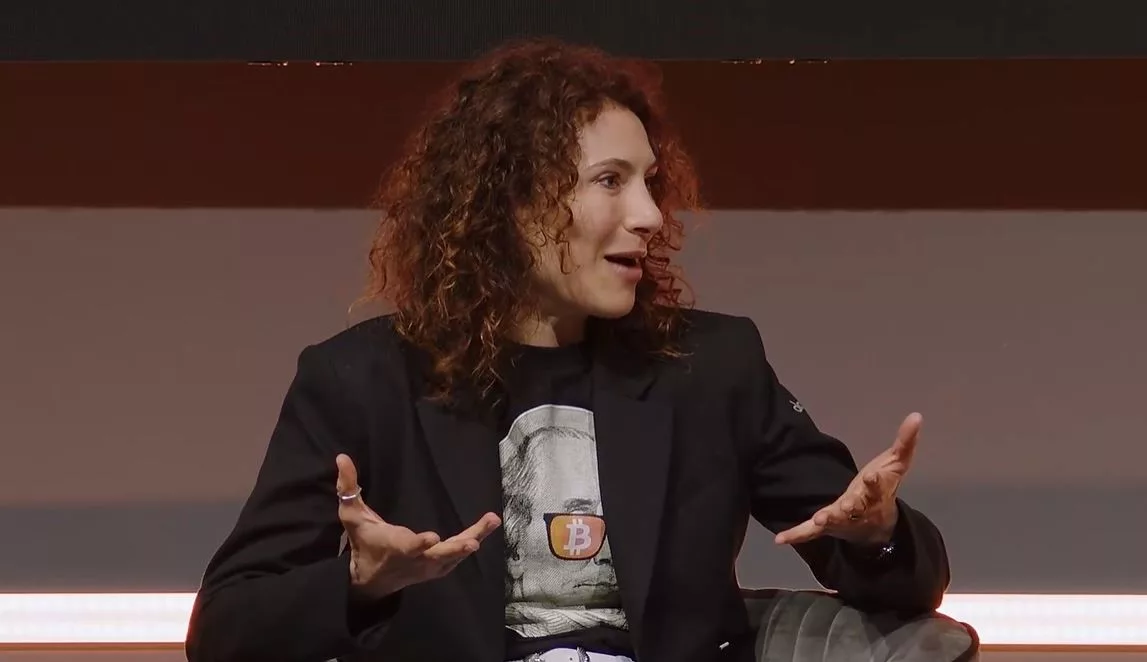|
Getting your Trinity Audio player ready...
|
Artificial intelligence and blockchain are two of the most frequently used buzzwords over the past 12-24 months. For a time (and arguably still today), all a company needed to do was mention either word to their investors to pique interest and send share prices soaring.
But as tempting as it is to be cynical about zeitgeists such as these, there are sound reasons that the invocation of either concept is so powerful. It’s because there is a basis for the hype.
So, naturally, the AI-enhanced blockchain session of the London Blockchain Conference 2024 was one of the better subscribed on Day 2. Two leaders took the stage to discuss the transformative potential of integrating artificial intelligence into blockchain operations: Ijeoma Okoli, director at Digital Economy Initiative, joined moderator Stefania Barbaglio, founder at Cassiopeia.
Okoli is a former financial lawyer with a boatload of U.S. and U.K regulatory experience, and that’s the vantage point from which she assesses both of these technologies. Barbaglio starts off at the deep end: how can AI help blockchain be more efficient?

“Sometimes people talk about these emerging technologies as solutions looking for a problem,” said Okoli. “That’s true to some extent, but in other ways, it’s not true.”
“We know blockchain has been around a while and traditional financial services parties are adopting blockchain not just in the native crypto sector. But with the birth of ChatGPT and the explosion into the world in 2022 of AI, people are looking at issues within blockchain and how AI can help resolve some of those issues.”‘
One of those issues is about scalability. Transaction speeds limit the growth of blockchains, says Okoli. Looking at BTC and Ethereum: BTC, on average, processes 7 TPS, while ETH processes 30 TPS. Financial services payment service providers dwarf that. Visa (NASDAQ: V) processed 6,800 TPS, for instance. That’s a huge disparity. Not only that, the transaction speeds of the likes of BTC and ETH typically slow to a crawl during periods of high congestion.
Okoli says that in light of AI’s ability to analyze data and then use that to make predictions, proves that the technology could be used to project congestion periods within blockchain ecosystems.
For another example, Okoli looks to Ethereum’s side-chain solutions, typically referred to as one of two kinds of ‘rollups’: zero-knowledge rollups and optimistic rollups. The former sees transactions validated off-chain and then incorporated into the blockchain using zero-knowledge proofs. The latter form considers all transactions genuine unless a validator disputes their validity. Such validations, Okoli says, can take up to two weeks to occur. Outsourcing this validation to AI can cut this turnaround down dramatically.

Okoli also says that in addition to analyzing data on (or waiting to be put on) the chain, it could audit blockchain applications for vulnerabilities. Instead of waiting for the software to be released to the world and then relying on white hats or black hats to discover any exploits, AI could do that work quickly and efficiently.
The same can be said for detecting fraud. Okoli raises the Ethereum hack of last year to illustrate. In April, there was an exploit on the Ethereum blockchain where validators manipulated a vulnerability to make away with $25 million. What was important here was that it was the first exploit of its kind, highlighting a vulnerability in the post-merge validation process that was only detected at the time it was being exploited. So, says Okoli, AI could have been used to audit and detect the vulnerability before the bad actors did, but it also would have helped with detection once the exploit began being used to steal money.
Next, Barbaglio asks: what about the challenges of AI integrating with blockchain?
Perhaps unsurprisingly, given Okoli’s background, her answer was: regulation. Though now, as both these technologies have already begun working their way into the consciousness of legislators and regulators, the issue is more grappling with the many regulatory frameworks that have become or are making their way into law over the past 12 months.

Okoli points out that just this week, the new Artificial Intelligence Act came into force in the European Union. She calls it the ‘first of its kind in the world, focusing specifically on AI.’
“To the extent that folks are looking to incorporate AI into the blockchain systems, you not only have to think about the [EU and UK Markets in Financial Instruments] and the Securities Exchange Act, you have to now think about the EU AI Act and the obligations it imposes on you.”
“It’s a risk based model,” she explains, “prohibiting certain things. But it has extra-territorial effect. So just because you aren’t in the EU doesn’t mean you don’t need to pay attention to it.”
Okoli explains that the Act requires risk assessments, disclosures, and cooperation with authorities. She also warns that though this is the first AI-focused legislation, it won’t be the last.
Okoli also points out that sound regulation of AI and blockchain share one of the main challenges facing those technologies themselves: interoperability.
“Every time we’re in a situation where there’s something new and regulators around the world have to act, to the extent they’re racing against time, what we tend to find is that there are inconsistencies. This has an effect where things are global, that the activities they are looking to impact are not restricted to territorial waters of a particular jurisdiction. These are global transactions.”
In order for artificial intelligence (AI) to work right within the law and thrive in the face of growing challenges, it needs to integrate an enterprise blockchain system that ensures data input quality and ownership—allowing it to keep data safe while also guaranteeing the immutability of data. Check out CoinGeek’s coverage on this emerging tech to learn more why Enterprise blockchain will be the backbone of AI.
Watch: Blockchain & AI—there should be confluence between these tech

 02-28-2026
02-28-2026 




